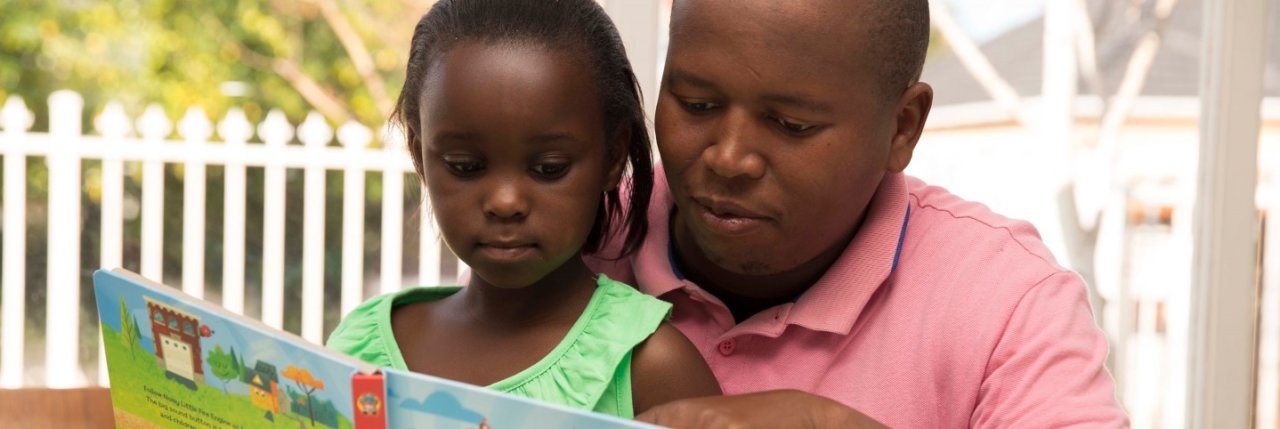When you’re a new parent, every day with your little one is a revelation. You’re watching them experience the world for the first time – they’re literally seeing the world with fresh eyes. There’s nothing like the feeling you get when you see your child take their first steps or speak their first words. You might also find yourself wondering how your little one is going to progress through the stages of early childhood development – what will they be doing next?
Early childhood development stages
So, what do we know about the developmental stages of children? Well, thanks to years of research, these days we’re able to predict quite accurately which milestone you can look forward to next. Obviously, it’s not a totally exact science, because everyone moves through the child development stages at their own pace, but here’s generally what you can expect in your child’s first year:
0-3 months
Newborn babies develop rapidly and in the first three months of their life you’ll notice lots of important changes – from facial recognition skills to responding to stimuli.
As a newborn, your little one will very quickly start to focus on faces – within two weeks they should be able to recognise mummy and daddy!
By one month old, you’ll see them start to respond to the sights and sounds around them – smiling and laughing at things they like or becoming startled at loud noises. Speaking to your child during this stage can help with this development, even if they can’t quite understand you!
By three months old, your little one should start to lift their head when lying on their stomach. By this stage of early child development, you can also expect them to start to grasp objects placed in their reach and wave their arms and legs.
Note for Moms and Dads: Once newborns start to lift their heads up it is not long before they start rolling around and trying to be more active. Take precautions when changing or resting your baby and make sure you never leave them unattended as they could roll off the changing table or bed and hurt themselves.
3-6 months
As your baby continues to develop, you’ll reach a number of new milestones to mark each passing month of their life. Between three and six months of age, you can expect your bundles of joy to become more tactile and interactive by holding items and babbling to you.
From three months old, your little one should start to reach and grasp objectives near them. This is an important part of child developmental stages and it’s likely they will put items they grasp in their mouth so make sure you keep an eye on this!
At about four months old, most babies start to babble and make their own little noises. They may also start to recognise sounds, such as their name, and faces. This means they can tell the difference between a familiar face and a stranger.
By six months old, they’ll be starting to sit up unsupported. They’ll also be teething by this point, and maybe even starting to eat their first solid foods.
Note for Moms and Dads: teething can be a traumatic experience for babies and parents alike. Spot the signs early and do what you can to ease your child’s discomfort. Most babies will try to self-soothe by chewing on items around them so make sure they have suitable teething toys.
6-9 months
With your child over the first big milestone of their development – 6 months – you can expect a much more active child who is starting to gain control of their fine motor skills.
From six months old, your child should begin to develop fine motor skills. This means they can pass objects from one hand to another.
At seven months old, your child should start responding to your voice and be able to imitate some familiar sounds. They may even pronounce their first word-like syllables! They’ll still enjoy repetitive sounds though so you may want to think about using a rattle to help stimulate them.
By eight months, your child should also understand object permanence. This is the understanding that objects they can’t see are still there and means you can now enjoy lots of games of peek-a-boo!
By nine months, your baby should be sitting unsupported and starting to crawl around. They may even be using furniture to pull themselves upright.
Note for Moms and Dads: as your child gets more mobile it is a good idea to check the safety of your home. You can install a baby gate to prevent your child from accessing dangerous areas, such as the stairs or the kitchen, but you may also want to consider the position of your furniture and keep low-lying items away from windows and other dangerous areas.
9-12 months
By this point in their life, your child will have developed massively since you first brought them into the world. Changes in this stage of early child development include their first steps and first words – all to coincide with their first birthday!
From nine months old, you can start watching to see if your child takes their first steps. Hopefully, they'll be starting to stand unsupported and walk a little way on their own by ten months old.
From ten months old, your child should also gain further co-ordination skills. They’ll be able to drop things, pass an object to another person, and may even begin to use hand gestures and imitate other people’s actions.
Towards twelve months of age, you should also be on the listen for your child’s first few proper words. They may even be able to understand and follow a couple of basic instructions – although except “no” to become their favourite word as they enter their toddler years!
Note for Moms and Dads: with your little one able to move about on their own two feet you will need to be extra vigilant over safety. Make sure cleaning products and anything dangerous is stored safely out of reach and keep a close eye on your little one as they start to explore their environment.
Development stages of children: After one year
From here, it’s a steady progression through the child development stages towards physical independence. Between one and two years, you’ll see your child start to:
Walk and run by themselves
Carry things around
Start to feed themselves (messily, of course!)
Understand and use more words – the average toddler will be able to say a great number of recognisable words and understand far more. Talk to them often and describe what’s around them to help language skills develop.
These are just a few things you can expect as your child moves through the early childhood development stages. Remember to give them as much attention as you can, and keep talking to them so that they recognise common sounds and words. Above all, enjoy spending time with your newest family member! These developmental stages of children are a great guideline for what to expect in these early months, but there’s something magical about watching the way your own small, unique person starts to grow.
For more articles, visit the Messy Play Zone section on the OMO website today!


